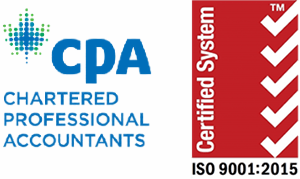Sole Proprietor
T4 Self Employed
This FAQ guide will show you all you need to know about independent contracting.
As a sole proprietor working through a placement agency, your earnings are considered to be both pensionable and insurable. Per CRA (Canada Revenue Agency) guidelines, an agency is required to make deductions for Canada Pension Plan (CPP) and Employment Insurance (EI).
Because your agency is required to make deductions for CPP and EI, you will be issued a T4 slip at the end of the calendar year. The T4 slip will show code 11 in box 29. Box 14 (Employment Income) of your T4 slip will be blank.
Code 11 means “Placement Agency-Self Employed”. This is a special indicator to notify CRA that you are self-employed (a sole proprietor) and are working through a placement agency.
Effective 2004, CRA required that we leave Box 14, Employment Income, blank when Code 11 is used in Box 29. Your gross earnings, as a placement agency self employed worker, are reported in Box 81.
CRA required that we issue a T4 slip to you. The work you perform is both pensionable and insurable. A T4A does not reflect deductions for CPP and EI.
No. Because you are self-employed, this form is not required in order for you to deduct business expenses. Ask your accountant to advise you on how to claim business expenses.
Please go to the forms and publications section of the CRA website: https://www.canada.ca/en/revenue-agency.html and refer to Guide T4001, Employers’ Guide – Payroll Deductions and Remittances. This topic is discussed in Chapter 7, Special Situations – Placement and Employment Agency Workers. See also RC4120 Employers’ Guide – Filing the T4 Slip and Summary, Chapter 6, Special Situations – Placement or employment agency workers – Agency that pays the worker. You can also get additional guidance on “How to fill to the T4 Slip” for Agency that pays the worker.
You should be aware that not all accountants and CRA representatives are fully aware of the rules for people with self-employment income from placement agencies, including the fact that you are entitled to claim normal business expenses associated with earning your income. If you are self-employed, it is a good idea to have a professional accountant prepare your tax return, someone who is familiar with the rules for self-employment income from a placement agency. In addition, a professional accountant can help you identify all expenses that you are eligible to deduct and minimize the tax you have to pay. As a small business owner you are entitled to several tax minimization strategies that are not available to individuals working as full time employees.
Some quick tips for filing your taxes
** You are treated as an employee for EI and CPP purposes but self-employed for tax purposes.
** You should report your gross income and expenses using Form T2125, “Statement of Business or Professional Activities”.
**When calculating your business gross revenue, include all invoices for the services performed from January 1 to December 31.
**Any taxes owing, after deducting any installments made for the tax year, are due on or before April 30th each year. You and your spouse (if applicable) are required to file your tax return(s) on or before June 15th each year.
** Contact CPA4IT for a free initial consultation on the benefits of incorporating.


